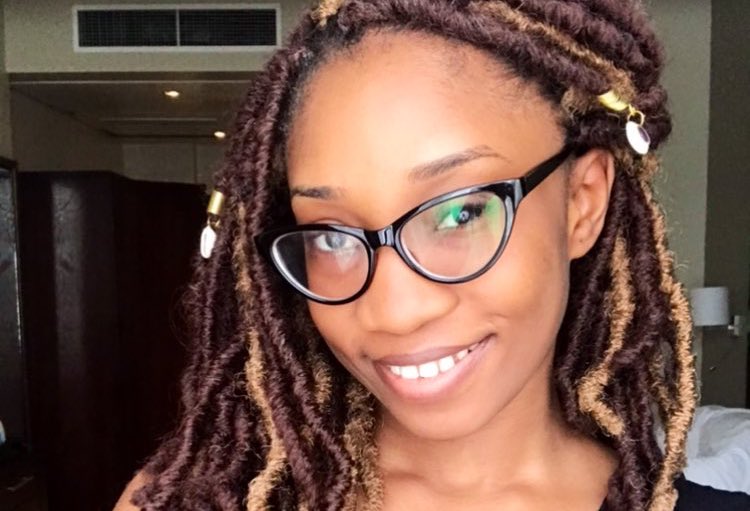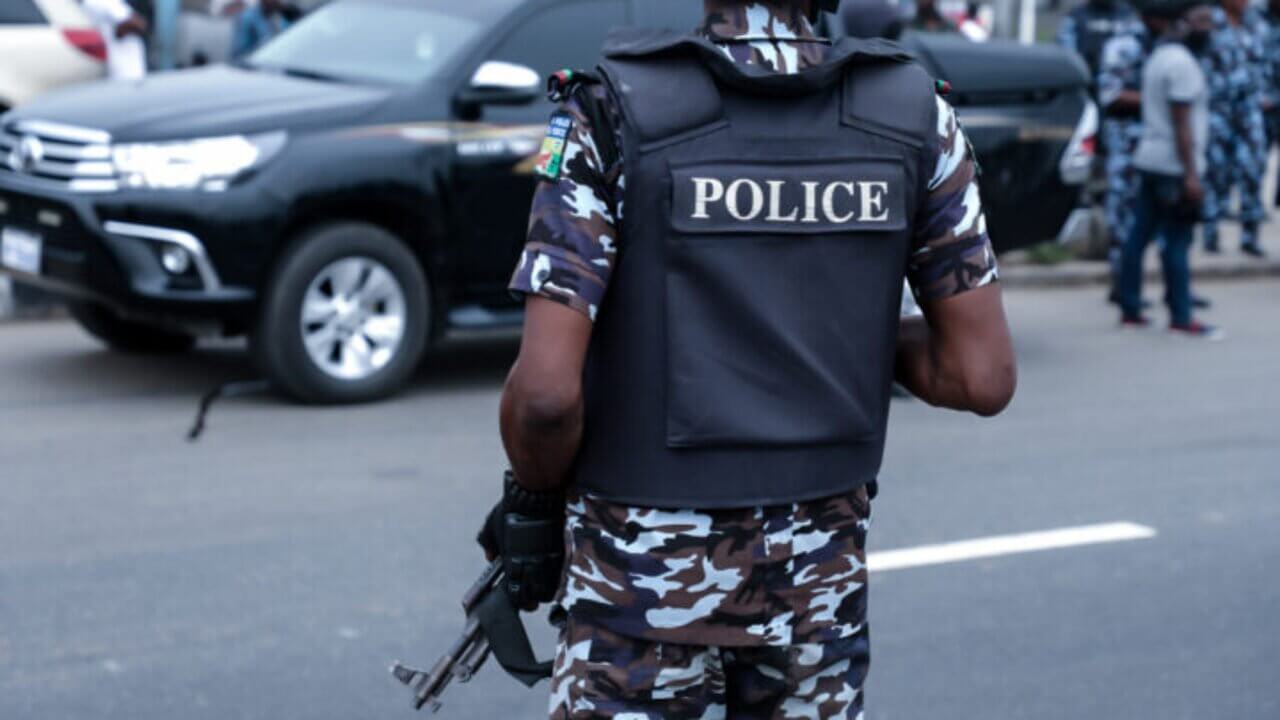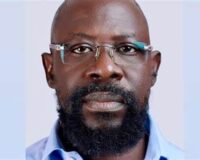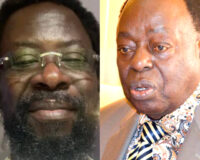On Sunday afternoon, Ogechi Obidiebube, a BBC reporter, attempted suicide for not being ‘credited’ despite her immense contribution to the sex-for-grades documentary.
Rather than mention her name in the section of the closing credits, a pseudonym, “Kemi Alabi”, was credited.
However, multiple sources in the British media organisation, who spoke with PREMIUM TIMES, have shed lights on how Ms Obidiebube was assigned a pseudonym.
Kiki Mordi, a freelance journalist, alongside members of the British media investigative team, Africa Eye, worked on a 54-minute documentary released in 2019.
The investigative piece exposed how academics target vulnerable female students – those struggling with studies, seeking admission or in search of mentors – for harassment and sex.
Through the use of secret cameras, undercover reporters of the BBC Africa Eye team captured the dialogues of four lecturers of the University of Lagos (UNILAG) and the University of Ghana, as they attempted to cajole and manipulate the undercover journalists into engaging in sexual acts with them.
Some of the lecturers were later suspended and sanctioned by their school authorities.
Apart from the impacts the documentary generated, it put Ms Mordi in the spotlight as she became the face of the exposè on pages of newspapers and magazines. She was widely celebrated around the world as a woman who produced a ground-breaking film exposing sexual predators.
The documentary was later nominated in the current affairs category of the 48th International Emmy Awards for television programming as well as for the Grierson Awards, also known at The British Documentary Awards.
Recently, Ms Mordi was named the 2020 winner of the Michael Elliott Award for Excellence in African Storytelling for her role in the story.
But Ms Mordi’s recent win became controversial after a former BBC reporter, Ruona Meyer, in a series of tweets, revealed that Ms Obidiebube, who deserved even more credits for the reporting she did for the documentary, was sidelined.
Ms Obidiebube, a graduate of UNILAG and staffer of BBC, had previously accused someone of hijacking the product of her creativity, a day after the Emmy nomination was announced in August but she did not mention names.
In her reaction to the call-out, Ms Mordi restated that she was the lead reporter on the project, accusing Ms Meyer of mischief.
The face-off between the two journalists degenerated to the point that Ms Meyer threatened a lawsuit against the BBC over her work history, which she alleged was misrepresented by Ms Mordi.
Ms Mordi later deactivated her social media accounts after news of Ms Obidiebube’s suicide attempt broke.
Findings
As indicated in our earlier report on this saga, insiders at the BBC had attributed the woes of Ms Obidiebube to internal politics in the organisation and the ‘overwhelming’ influence of the organisation’s Head of West African Language Services, Toyosi Ogunseye.
PREMIUM TIMES has now obtained additional information about the processes and circumstances that led to the removal of Ms Obidiebube’s name from the documentary despite doing most of the reporting and catching the biggest culprit that gave the film the global acclaim it currently enjoys.
It learnt that while the documentary was being edited, Ms Ogunseye suddenly approached the producers, demanding that Ms Obidiebube’s input be removed.
When asked the reason for her demand, Ms Ogunseye reportedly explained that she was suspicious that the reporter might be psychologically incapable of withstanding the backlash that might trail the release of the film.
Some sources, current and former staffers, said the producers told Ms Ogunseye that if Ms Obidiebube’s inputs are removed, the documentary would lose substantial value and might not even trigger an impact.
Upon entreaties by the producers and insistence that the reporter’s contributions were too vital to be expunged, Ms Ogunseye pushed the option of a pseudonym for Ms Obidiebube. It should be noted that Ms Obidiebube works with the pidgin service, which Ms Ogunseye supervises, hence her influence in the reporter’s case.
Insiders say Ms Ogunseye’s position was initially countered by some production staff who saw no wrong in proper crediting of Ms Obidiebube, but that she stood her ground.
After Ms Ogunseye insisted, our sources said, the lot then fell on the then head of the pidgin service, Adejuwon Soyinka, to diplomatically explain the decision to the reporter. Mr Soyinka then told Ms Obidiebube that the BBC was concerned that if her role in the documentary became public, her sister studying at UNILAG could be targeted and mistreated by angry lecturers.
Ms Obidiebube was said to have protested the removal of her name and the assignment of a pseudonym to her. To pacify her, she was given a letter of commendation, praising her work for the documentary.
When contacted, Mr Soyinka repeatedly declined to comment for this story, saying he no longer works for the BBC and that all enquiries on the matter should be directed at the BBC.
Not the first time
The conflict of interests between Ms Ogunseye and her subordinates at the BBC Lagos office participating in Africa Eye projects did not start with the sex-for-grades documentary. It also did not end with it.
Although the Africa Eye is an independent investigative unit, it is under the supervision of the BBC Africa Division. However, when an investigation or its part is to be done in Nigeria, the team finds it difficult to engage BBC reporters in the Lagos office, this paper learnt.
In most cases, when these conflicts occur, the team hires the services of a local freelance investigative journalist.
For instance, while the team was rounding off its production of “Sweet Codeine”, another BBC Africa Eye investigation revealing the drug abuse problem in Nigeria, in 2018, Ms Ogunseye made a similar attempt to take Ruona Meyer, the lead reporter and a staffer of the pidgin service, off the project.
A Nigerian journalist, Ruona Meyer
A Nigerian journalist, Ruona Meyer
The producers, however, insisted that Ms Ogunseye’s request could not be granted because the BBC commenced the investigation even before her arrival at the corporation and had expended enormous resources into its making.
Ms Ogunseye, a former editor of SUNDAY PUNCH, landed her role at the BBC in December 2017, and she had barely spent six months in office at that time.
The reason for her request to remove Ms Meyer from the documentary remains unclear.
“Ruona (Meyer) was in Kano to take shots of security agencies arresting drug abusers when Toyosi sent her a mail that she was to appear before a panel the following day,” a BBC insider told PREMIUM TIMES. “Ruona was angry because she was on sensitive official assignment and wondered why she Toyosi was treating her so poorly.”
Those familiar with the matter said Ms Meyer responded by sending Ms Ogunseye a resignation letter. Producers of the Sweet Codeine documentary then prevailed on her to stay on until the film is completed.
The panel, which PREMIUM TIMES does not have full details about, was seeing into some salient issues in the Lagos office at that time.
Meanwhile, hours after the release of the Sweet Codeine documentary on April 30, 2018, Ms Meyer resigned from the organisation.
Her resignation was not unconnected with the unsettled differences between her and Ms Ogunseye, PREMIUM TIMES confirmed.
Also, earlier this year, the same conflict occurred when the Africa Eye team investigated the Abule-Ado explosion that claimed 23 lives in Lagos, using interviews and Open-source intelligence tools.
The investigation debunked the Nigerian government’s claims on the cause of the inferno – a truck that hit gas cylinders near one of its petroleum pipelines.
PREMIUM TIMES learnt that the story idea was conceived by Bethram Hills, an Open-source intelligence expert, with the support of Banjo Damilola, an investigative journalist and staffer of the BBC pidgin service.
Along the line, after Ms Banjo had made contacts with some of the victims, Ms Ogunseye demanded that she should be replaced with Fisayo Soyombo, a freelance investigative journalist.
This did not go well with the journalist, who sources claimed, had done a significant part of the work – tracing survivors.
Mr Soyombo became involved but Ms Banjo was later restored to the project.
Sources familiar with the production of the investigation told this paper that Ms Banjo came back on board when one of the major sources refused to speak with any other journalist except Ms Banjo, who made the first contact.
When reached for comments, Ms Meyer said while there is a backstory to her resignation, she does not want to share details yet because of a legal action she is considering to institute against the BBC.
“Yes, there is,” she said in response to PREMIUM TIMES’s enquiries. “But I will not speak on that because I have actually written to the BBC over the “asked to leave” defamatory statements and I will be likely taking legal action. So, I will only confirm what I put out in response: I resigned on 1 May 2018, hours after the documentary, which aired 30 April.”
She also declined comments on the rift with Ms Ogunseye and what transpired when she went to Kano for filming.
On the other hand, both Ms Ogunseye and Ms Banjo directed our reporter to their employer, the BBC, when contacted for comments.
Meanwhile, in her response, the BBC spokesperson said the organisation cannot respond to unattributed and completely inaccurate allegations.
“For clarity, Africa Eye is not based in Lagos. The programme has its own commissioning team producing investigations across the continent,” the spokesperson added.
Culled from Premium Times







